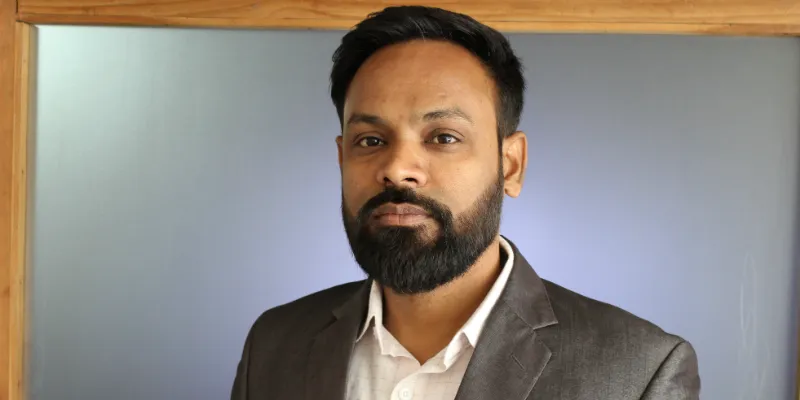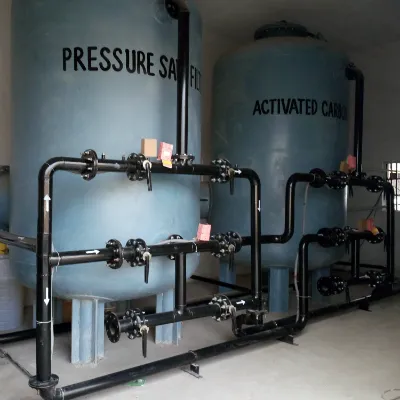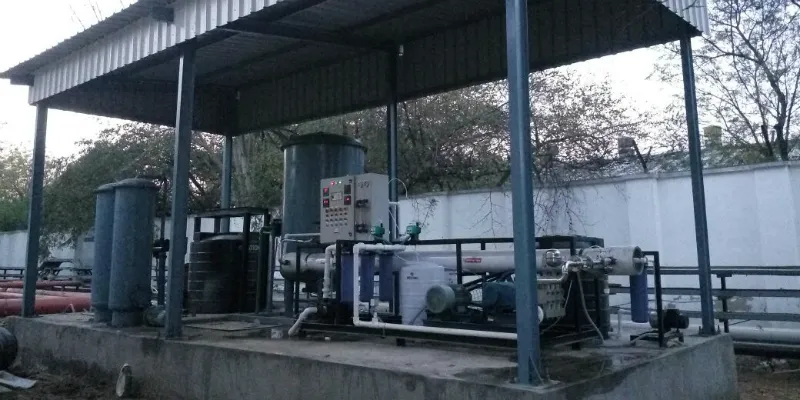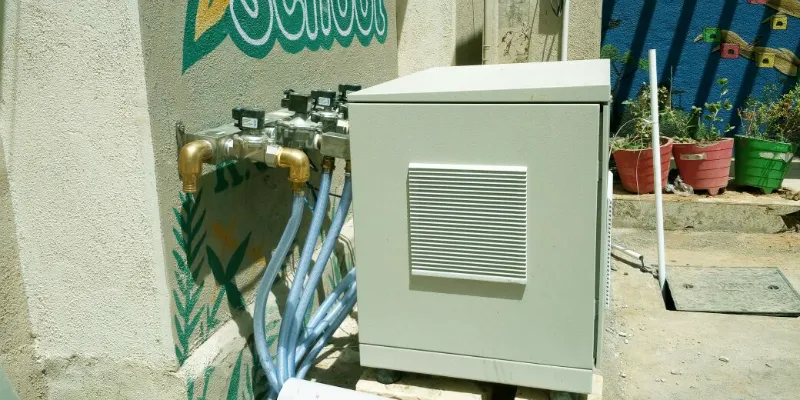World Water Day: Why Cleantech Water's decentralised approach is the future of wastewater and sewage treatment
Cleantech's decentralised water treatment solutions have a cost advantage, use less energy, offer a simpler way to reuse water, and make it easier to pilot new technologies.
On account of World Water Day, it is worth reminding ourselves why we need to do everything we can to reduce, reuse and recycle water. India has been facing a freshwater crisis for a long time. Only 2.5 percent of all water on Earth is freshwater. The Water Aid 2018 report showed that India tops the list of countries with lowest access to clean and consumable water.
Changemakers across the country are coming forward with new and innovative water treatment technology, and one of the promising players in this space is YourStory’s Brands of India 2019 winner Cleantech Water.
The Ahmedabad-based manufacturing unit is doing everything it can to offer a vast range of effective and innovative water treatment solutions, with a focus on sewage treatment plants, to domestic and industrial clients.
“The main objective is to make small treatment plants with low capacities so they can follow a decentralised approach for water treatment. This way, they also have a low operating cost,” says Vipul Chavda (37), Co-founder and Director, Cleantech Water.
He means that smaller water treatment plants allow industrial or residential units to adopt them and treat water themselves, rather than directing sewage to a centralised treatment facility.

Vipul Chavda, Co-founder and Director, Cleantech Water
Besides low costs, there are several other advantages to a decentralised approach. Smaller and compact plants use less energy for pumping than centralised models, where, sewage is pumped over a long distance to be treated.
The local reuse of treated water is also easier with a decentralised approach. Further, it is easier to pilot and implement new innovations in technology on a small scale than it is to change a large system.
Cleantech works on such decentralised water treatment projects for a multitude of clients. These include Hindustan Petroleum Corporation Limited, Amul, Tata Housing, Blue Star, Adani Institute, and more. The business also has technical collaborations with leading US, UK and German companies.
“Cleantech Water is the realisation of my dream of offering effective and reliable water treatment solutions. The team has innovative and imaginative people who work relentlessly to offer specialised solutions,” Vipul says .
Launched in 2013, the company has become a sought-after name in the water treatment industry in a very short time, he says, adding, "Our vision is to become a torchbearer of creating awareness of the three R’s: Reduce, Reuse, and Recycle. Our focus is to improve basic hygiene and sanitation, along with conservation of water bodies."
How it started
Vipul and his business partner Deepesh Namdeo launched the company by investing their personal savings. “We started the company with a small investment of Rs 25,000 and set up in a friend’s office for a few months. Slowly, we added more savings, got more clients, and expanded the business. As of now, we have invested around Rs 20 lakh in the business” he says.

Cleantech Water treatment plant at a Tata Housing project
It was a slow and difficult process to design and execute the first water treatment plant. “We met customers to understand their needs but we faced challenges financially. We didn’t want to close because we had the skills and desire to bring modern tech to the water treatment industry,” he adds.
Vipul had started his career as a chemical engineer, and he leveraged this expertise to come up with affordable and new wastewater treatment technologies being used in other countries. As the duo slowly put in more money into the company and executed smaller projects, Cleantech started seeing healthy returns.
It now brings in more than five times the amount invested. Last year, it raked in Rs 1 crore and this year, it expects to clock a turnover of Rs 2.5 crore.
Solutions offered
Cleantech water offers decentralised waste water treatment solutions as well as regular water treatment. In the first type, sewage water and grey water (water from domestic bathrooms, laundries, and kitchen outlets) is treated by passing it through a series of membranes or films located inside a treatment plant.
In the second type, water undergoes ultrafiltration, reverse osmosis, pressure sand filters, multigrade sand filters, or dual media filters.

Cleantech Water reverse osmosis plant
“Out of these, some popular technologies are the domestic water treatment plant, reverse osmosis plant, and softener,” Vipul says. “Sewage treatment plants (STP), effluent treatment plants (ETP) and zero liquid discharge (ZLD) units are popular among clients as well.”
Sewage treatment is a key focus area for Cleantech. “It is fundamental to treat sewage before it enters any water body. If permitted to enter water sources without treatment, sewage will pollute them, owing to high amounts of inorganic substances,” Vipul says.
Sewage Treatment Plants (STPs)
Cleantech’s decentralised sewage treatment plants use state-of-the-art technology to carefully remove physical and biological impurities in water coming from kitchens, washrooms, toilets and washing machines. After treatment, the water can be used for gardening or flushing. Vipul says that this water is also safe to direct back into water bodies or for underground water recharging.

Small and automatic Cleantech Water sewage treatment plant
Cleantech offers three types of STPs- SBR-based (Sequencing Batch Reactor), MBBR (Moving Bed Biofilm Reactor), and MBR (Membrane BioReactor).
Market realities
This approach to build decentralised STPs has caught the eyes of the competition. Vipul says, “We are technocrats and believe in good technology with good products. With our decentralised approach, our competitors want to have our products or try and copy them.”
However, he admits that managing prices and cash flow is challenging. With the competition getting closer, offering cutting-edge water treatment tech at affordable prices is getting tougher for the company.
Cleantech has worked with and supplied its water treatment solutions to several industries and clients, right from small and private units to corporates and government bodies.
“We consider these relationships as milestones. Having a good reputation in the market helps us get credit with suppliers and execute more projects,” Vipul explains.
Now, Cleantech aims to become a single-window solution for all decentralised wastewater treatment and cater to all industrial and domestic clients. Vipul says that he wants to offer services and products which are the best in this niche, and become the recognised technology player in the water treatment industry.
ALSO READ: With integrated solar tech, NRI-led AHCP plans to offset 16 cr kg of CO2 annually







